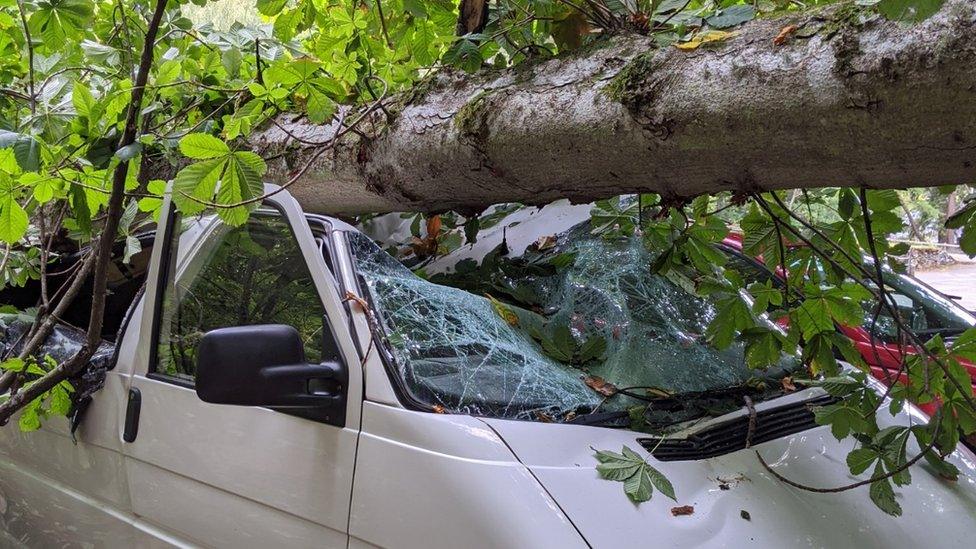Camper-van conversion: 'We sold all our possessions to go live in a van'
- Published

Meg, Josh and daughter Marlowe are living off solar power in their 6.9m by 2m Mercedes Sprinter
"We are essentially living in a bathroom, that's the size we are living in," says Meg Ward, 29, from Buxton in Derbyshire.
A few months ago, she and her partner Josh sold their house and furniture. Everything else - "13 years of family life," she says - was packed away into storage.
They bought a van - something the couple had wanted to do for a few years - which they now live in as they travel around Europe with their four-year-old daughter, Marlowe.
"We were definitely scared," says Meg, of the moment they caught their early morning ferry to France to start their new life. "It's quite daunting, selling all your things. But it's exhilarating, the sense of freedom you get from it, it's brilliant."
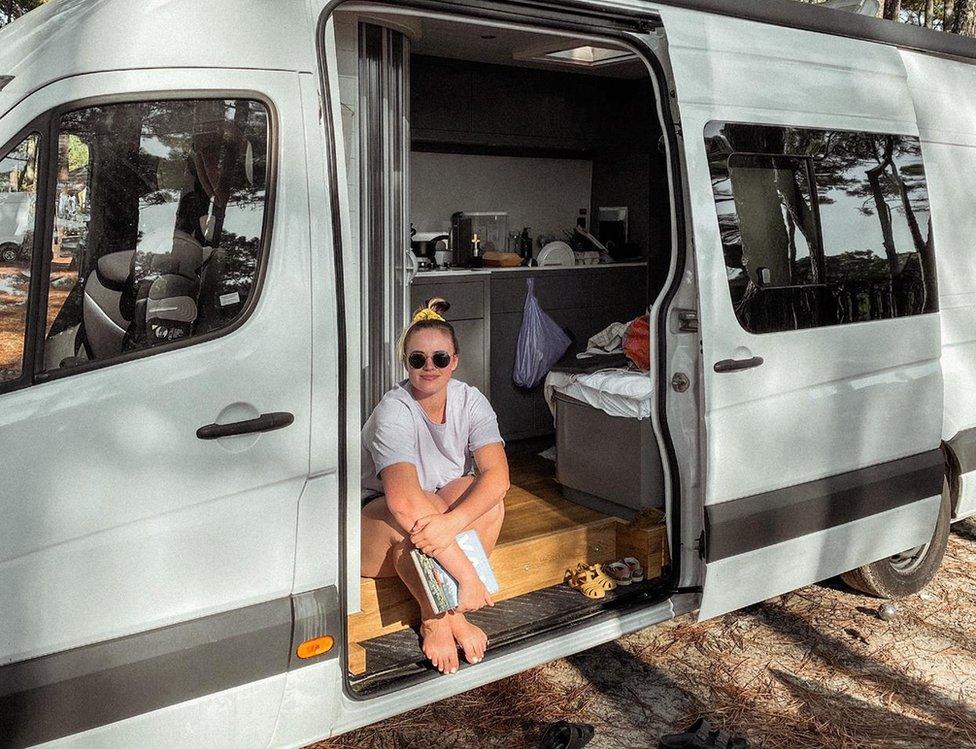
Meg - a freelance marketing and web designer and owner of a coconut bowl company - will work while on the road
The family are not alone. Already trendy in the US and Australia, living and travelling in converted vans has become increasingly popular in the UK in recent years - and the pandemic may have provided a boost.
Demand for commercial vehicles is up 57% year-on-year, Auto Trader says. In its recent survey, the advertising website found more than half of new van buyers said they wanted a van for personal use, such as hobbies, travelling and converting.
But the trend is a far cry from the traditional working-class caravan holiday. A search for #vanlife on Instagram, external brings up more than eight million posts which show vans fitted stylishly with luxury amenities or parked in beauty spots, rear doors opened to frame a beach sunset.
"There are two main customer bases," says Emily Cotgrove, who runs Vanlife Conversions in Essex with her partner Oli, an Army veteran. Present the couple with a commercial van and they will convert it for you for upwards of £28,000.
"One [market] is like the 25 to 35s, maybe they work remotely and want to travel while they work. They might see they can now work from anywhere. And the other target market are the older generation who would have looked at motorhomes in the past."
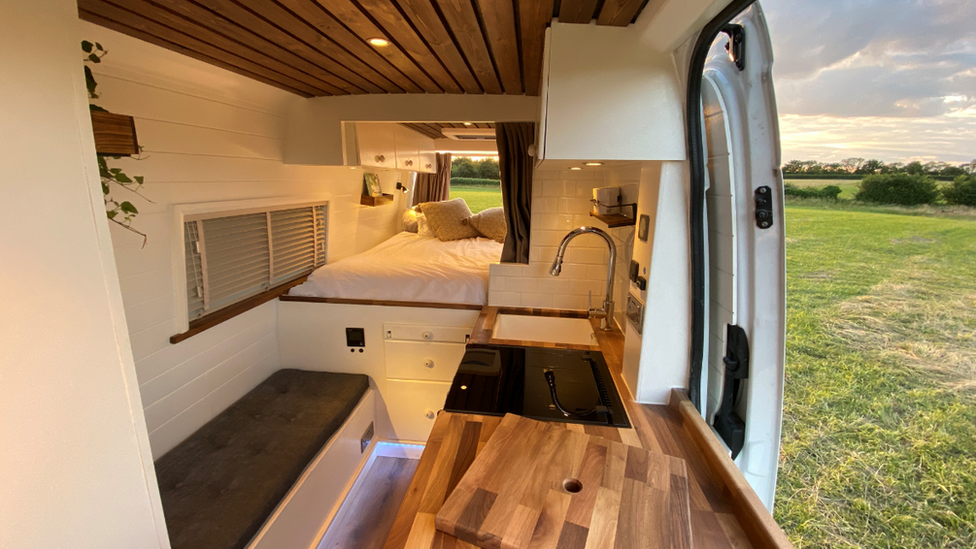
Emily says a commission to do a van conversion takes around 12 to 14 weeks
Emily thinks coronavirus has accelerated the demand for van conversions as staycations and remote working boom. "Before Covid, we had a six to eight-month wait list," she says. "Now we are booked up for 18 months.
"People have realised there's a lot to see in the UK and a lot of ways we can go around it. And it's not the compromise you normally get with camping. It's effectively an apartment on wheels. You really do feel that it's a luxury way to travel."
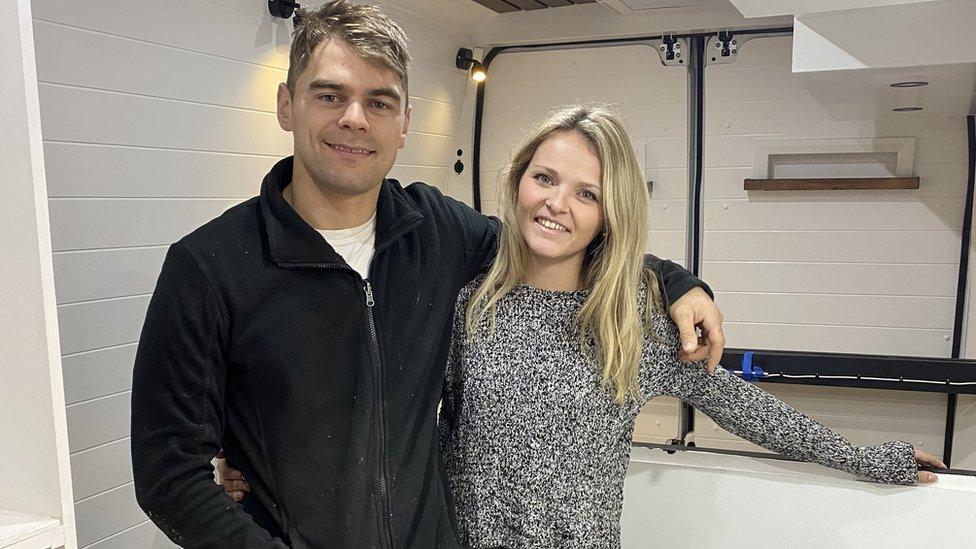
Former doctor Emily and Army captain Oli left their "intense" jobs to start their van conversion business
But for many, paying for a conversion is simply unaffordable. Scores of people are choosing to do up a van themselves - an option that can be far cheaper.
During lockdown, Chloe Nash, 25, from Keighley, West Yorkshire, sold her car and bought a second-hand Citroen Berlingo.
She had wanted to do it for a few years but couldn't afford it. "The only positive of Covid for me is that I have managed to save more money," she says.
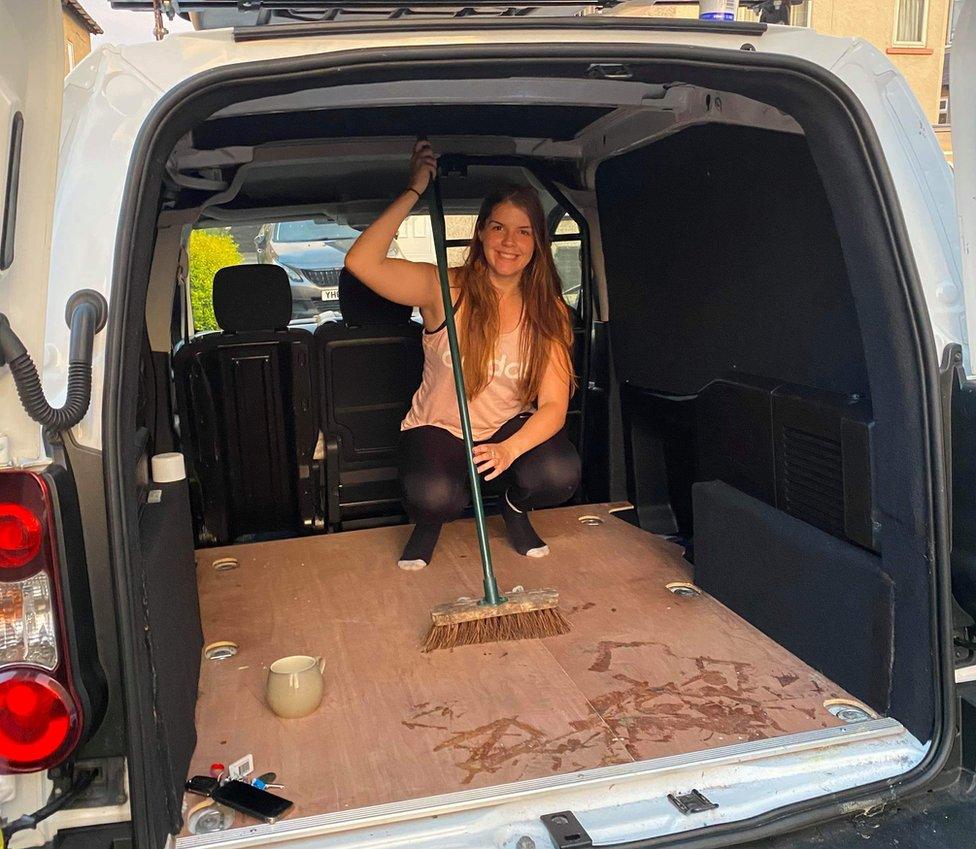
"I decided I was going to do this conversion on my own and on a budget," says Chloe. "Being from Yorkshire it's not too difficult to stick to lower costs - it's in our blood!"

For weeks she spent her evenings after work converting it; she insulated it, lined the sides with carpet and the floor with lino. Her most expensive purchase was the bed, which she bought custom-made for £575 because she says she didn't have the "skills, tools or time".
Chloe added a shower that plugs into the van's rear cigarette lighter and hangs on the back door. It pumps water previously heated on the stove. The whole project, excluding the van, cost less than £1,000, she estimates.
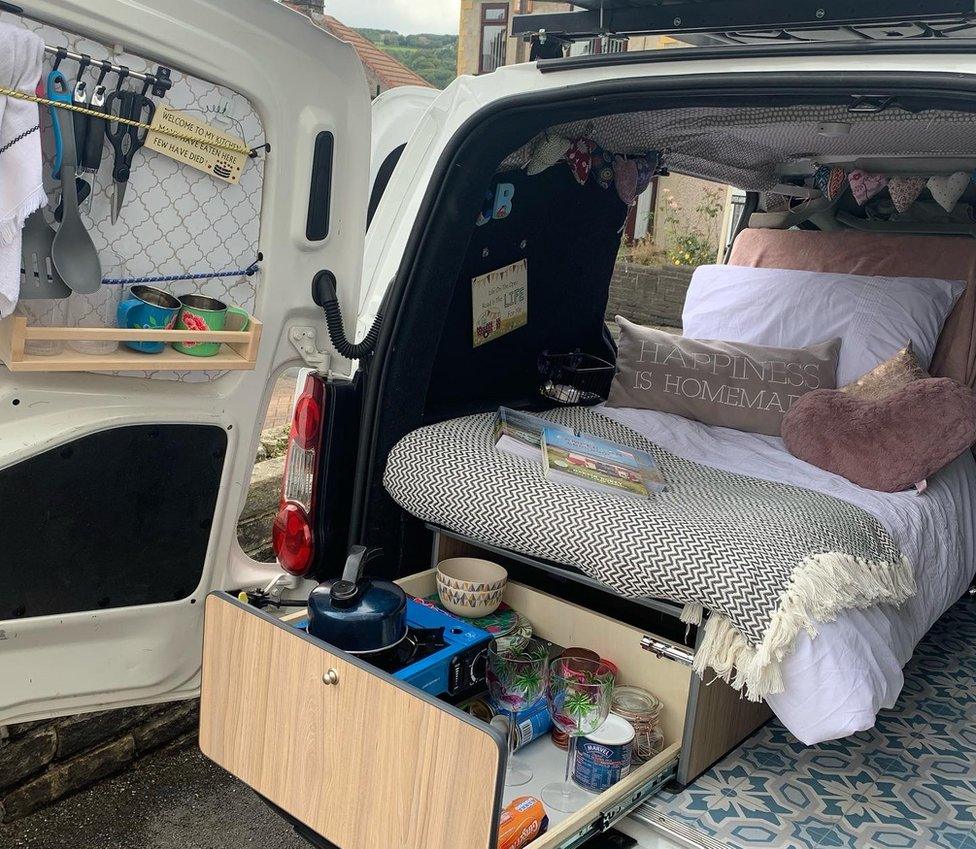
She says the conversion "proved to me that I can do anything if I put my mind to it"

"A few people asked if it was a good idea and now I can confirm it was the best idea I have ever had and gone through with," she says.
Chloe - who is blogging her van experiences, external - says the project gave her more self-confidence. "Purchasing my van has made such a big difference in my life," she says. "Now I totally have my freedom."
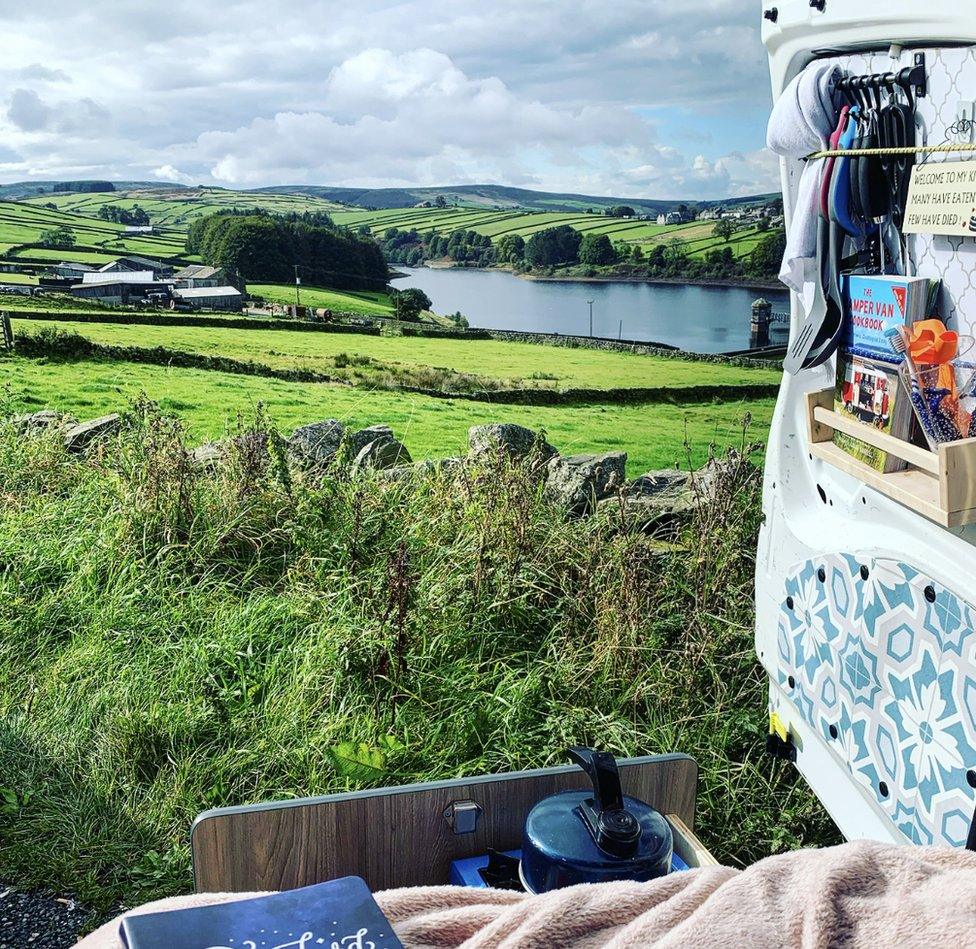
Chloe has already taken the Berlingo - named Brenda - to UK beauty spots and next year plans to travel around Europe

Like Chloe, Meg is also attracted to the sense of freedom that van life provides - but she says it was also an opportunity to give daughter Marlowe new experiences.
Speaking from Portugal in the family's Mercedes Sprinter - which they bought already-converted for £40,000 - she says: "I loved my life in the UK, I never felt like I was running away from anything. It's not like we were desperate to get away from a life we weren't enjoying.
"In the UK we found we were still having those issues that a lot of parents would have, like are we showing her enough, is she seeing enough different things, is she having too much screen-time? Whereas living in the van, she's playing in nature every day. She speaks to children who are each speaking different languages.
"I get messaged on Instagram every single day, people saying I wish I had the guts to do what you're doing, which I find so sad. You can do it. You don't have to sell everything like we did. You don't have to commit like we did."
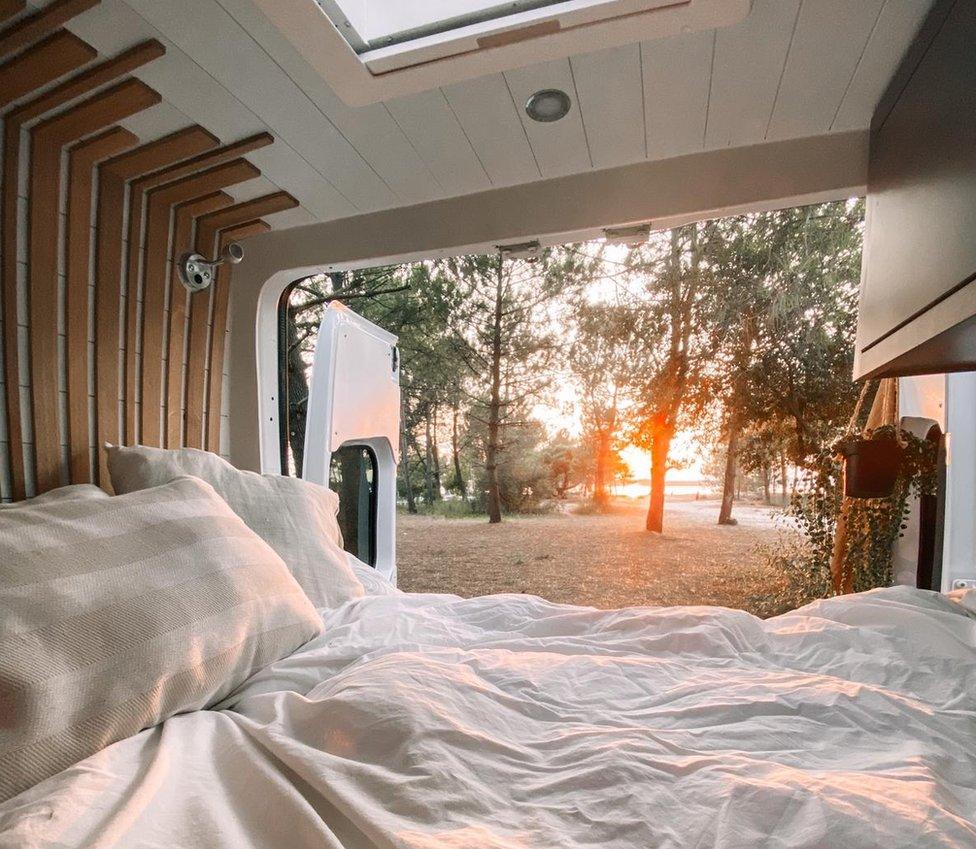
Meg says the small space is a drawback - "you do get on top of each other"
And of course it does not tell the whole story. For many people, living in a van is not so much of a lifestyle choice but a way of life.
Barny Erdman, who lives in Norwich, has been a full-time van-lifer since 2014. "My hand was kind of forced," he says. "My relationship broke down and I had a small van I had converted into a little working get-around camper. I moved out into that as a temporary measure whilst I tried to make some savings.

Barny says he has found Covid difficult - with public facilities like toilets closed, and police officers thinking he was breaking the stay at home rule
"I got used to the smaller space, got used to this idea that this is your home so I thought I would make a go of it."
Barny, 36, who is a key worker as a delivery driver for Sainsbury's, is now on his third van - an old police wagon. At one point he was in an old mobile library but says that was "too big - trying to park it in places was a nightmare. Travelling any distance became too expensive."
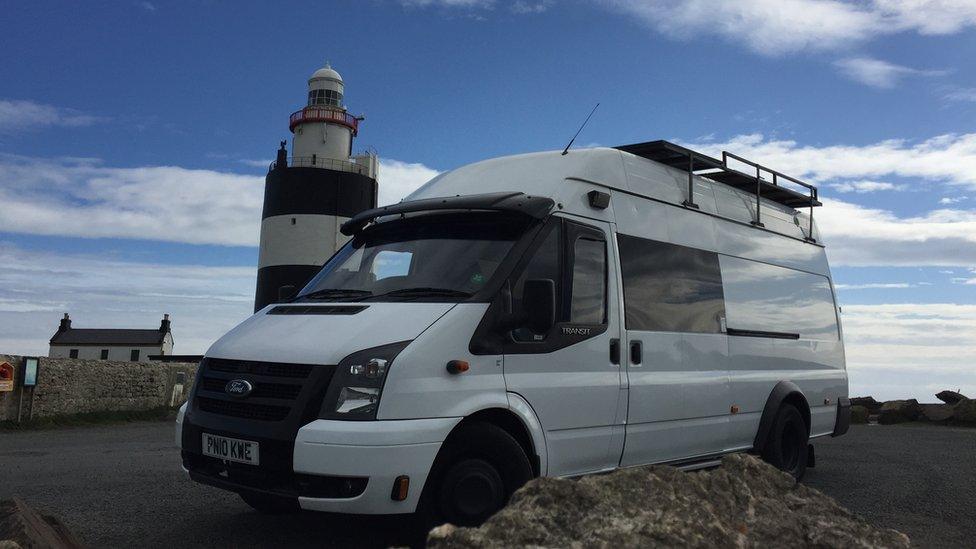
Barny's Ford Transit van is off-grid with solar panels and a 60l water tank that he says lasts him two weeks
He enjoys the freedom and sense of community that van life offers. And while he has no hostility towards the recent boom in the van life trend, he suggests it is "the gentrification of van life".
"I think each to their own, if somebody wants to do that they can do that, as long as they stick to the rules and respect other people," he says, of the newer crowd.
"The whole staycation thing, for me it's caused a lot of trouble. It brings people who don't do this into it. So I have found a lot more people littering and emptying their toilets in a hedge somewhere which obviously gets the locals' and neighbourhoods' backs up."
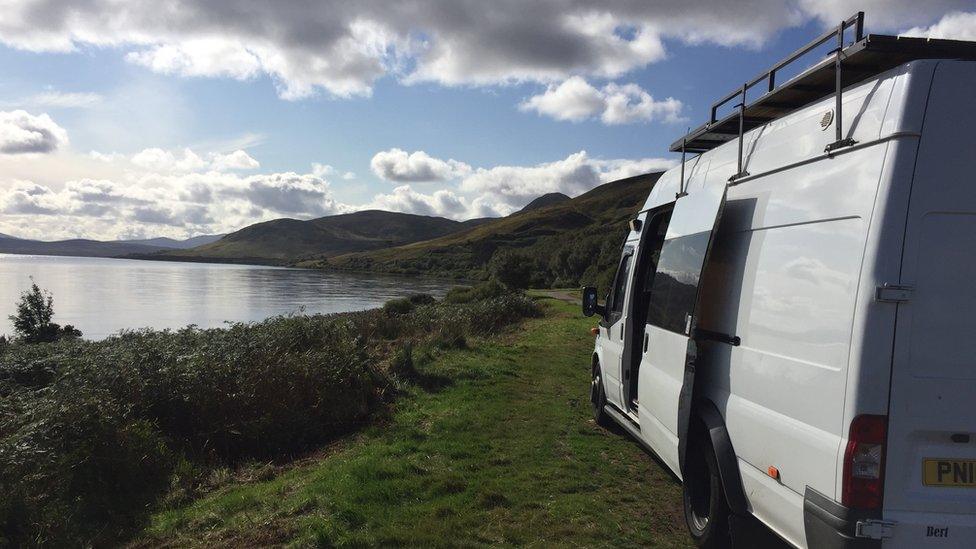
Barny was able to take off and travel around Scotland and Ireland last month
And he says he has noticed it has pushed the prices up. "For years it has been a way of life for people who are not so financially capable. Like the older vans and things people used to buy to live in, you would pick up for a few hundred pounds," he says.
Auto Trader's analysis also found this - the average price of a used commercial vehicle was up 20% this September compared to last.
As the UK prepares to face a winter of being cooped up indoors amid lockdown restrictions, the thought of spending any time in a even smaller space might not sound too attractive.
But on the flip side, perhaps van life chimes well with that shift to simpler living that many saw during the national lockdown?
"It's a nice exercise to live in a van and live with less," says Meg. "I would definitely recommend it."
- Published25 May 2020
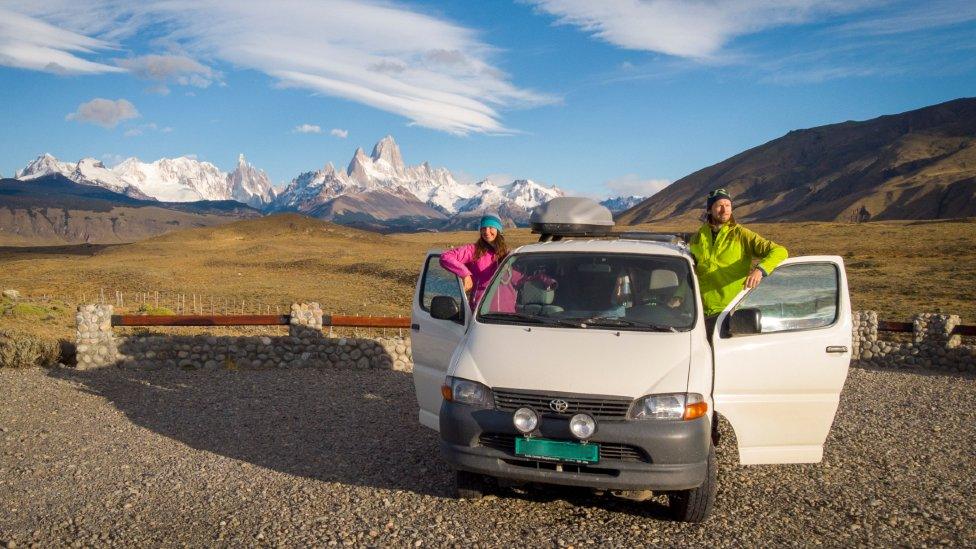
- Published15 September 2020
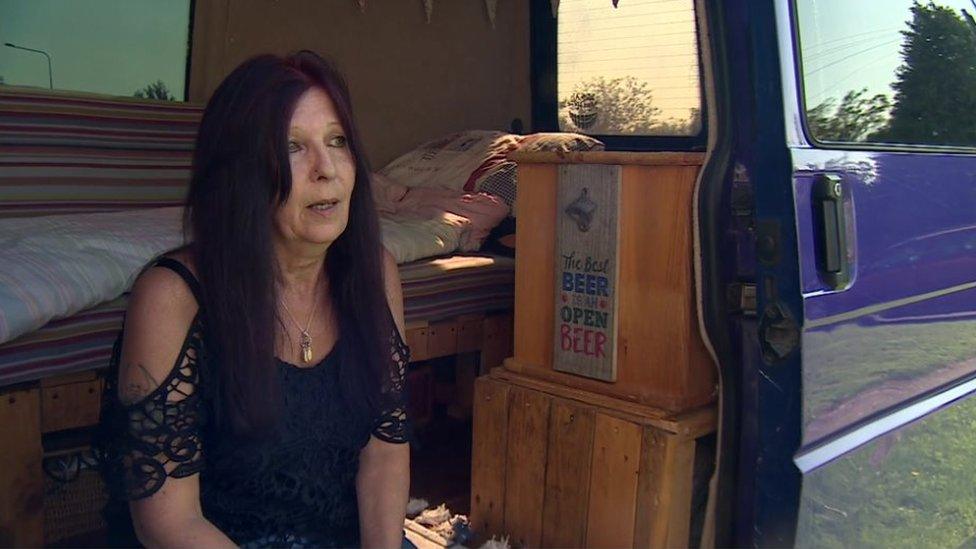
- Published2 August 2020
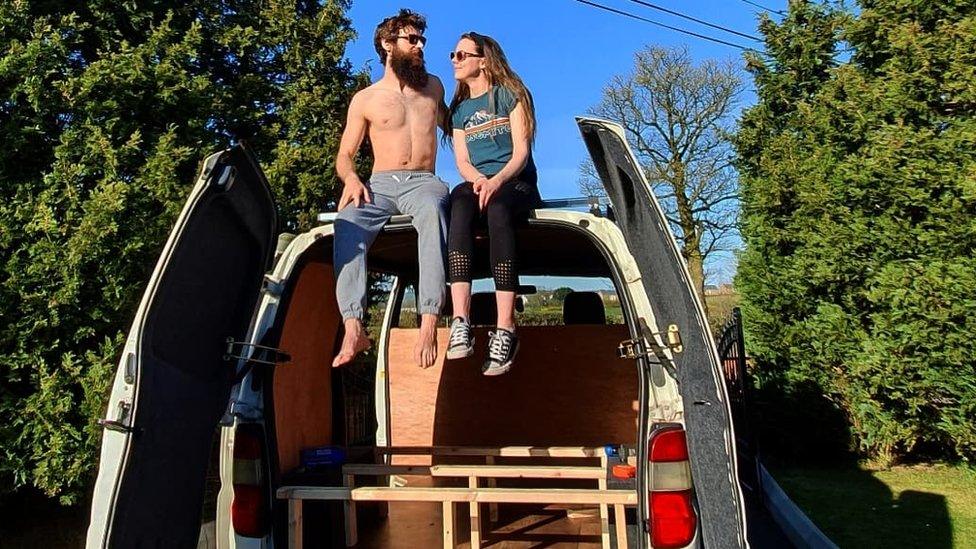
- Published22 March 2020
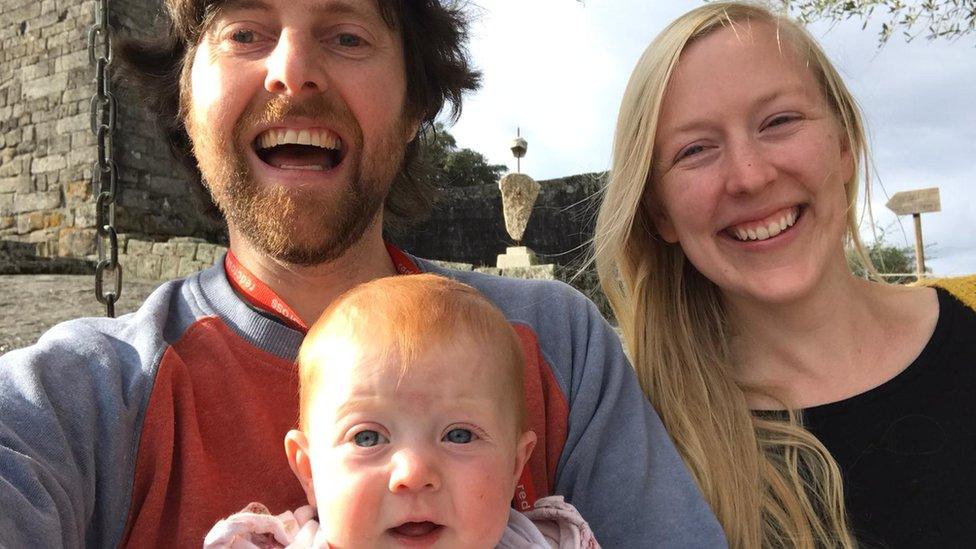
- Published5 October 2020
